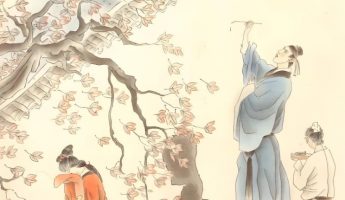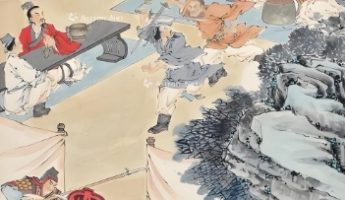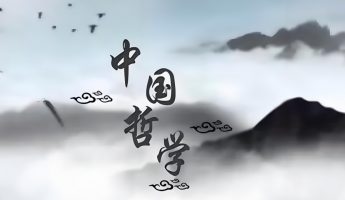In the context of today’s knowledge system being deeply influenced by Western academic systems, exploring “Chinese studies” is undoubtedly a challenging task, as there are significant structural differences between traditional knowledge systems and modern Western knowledge systems. However, given the core position of philosophy as the foundation of all disciplines, when we attempt to analyze the essence of “Chinese studies” from a Western perspective, philosophy undoubtedly becomes the most suitable entry point. The “Essentials of Chinese Studies” published by Zhonghua Book Company cleverly integrates Chinese and Western knowledge while respecting the tradition of Chinese studies. The author Xia Hai, based on the three major standards emphasized by scholars in the Qing Dynasty, namely, principles, rhetoric, and textual research, clearly focuses on the “study of Chinese studies through principles”, which accurately captures the core of Chinese studies.
Reading through the “Essentials of Chinese Classics”, it is not difficult to find that the Chinese philosophy or principles revealed in the book are the key path to the hall of Chinese studies. Although the boundaries of traditional Chinese culture from a philosophical perspective are relatively clear, the profoundness of Chinese philosophy still needs further refinement and exploration. As Mr. Chen Yinke said, Chinese cultural thought can be summarized as “three religions and nine streams”, among which Confucianism, Taoism, and Buddhism are particularly core. Therefore, the focus of “Essentials of Chinese Studies” on Confucianism and Taoism is not only a wise choice for the author, but also an effective way to guide readers to deeply understand Chinese studies. Although Buddhism originated from foreign lands, its essence has been deeply rooted in local culture and has become an indispensable part.
Both Eastern and Western philosophy are essentially profound reflections on existence, and this process of reflection cannot be separated from the expression and construction of language. Language is not only a medium for philosophical thinking, but also an integral part of philosophical thought itself. When we consider the philosophy of Confucianism and Taoism as the key to exploring the essence of traditional Chinese culture, the understanding of traditional philosophical language becomes the cornerstone of interpretation. Through the lens of language, we can transcend the constraints of material aspects and reach the profound metaphysical principles of traditional Chinese culture.
Given the close connection between language and philosophy, as well as the characteristic of tracing back to the source in the exploration of principles, “Essentials of Chinese Studies” focuses on the classic literature and core concepts of Confucianism and Taoism, which is a logical and inevitable result. Classics are the source of principles, while concepts are the crystallization of ideas. Through in-depth analysis of core classics such as Laozi and the Four Books, as well as key concepts such as “Dao”, “Ren”, and “Yi”, readers can gradually grasp the essence of traditional Chinese culture and avoid losing direction.
It is worth mentioning that although the “Four Books” were formed in the Song Dynasty, their classic status is unquestionable, and compared to the “Six Classics”, they are more systematic and clear in their exposition of principles, making them more suitable for beginners to learn. Among the ten core concepts selected in the “Essentials of Chinese Studies”, although “Dao” originated from Taoism, it also occupies an important position in Confucianism, demonstrating the characteristics of Confucianism and Taoism sharing certain core values despite their different paths.
In addition, when reading “Essentials of Chinese Studies”, it is also necessary to pay attention to the subtle relationship between knowledge and values. The analysis of concepts and the study of classics first unfold at the level of knowledge, but behind knowledge often lies profound values. If this point is ignored, it may lead to a shallow understanding of righteousness. Mr. Xia Hai wrote this book with the aim of sharing his profound cultivation of traditional Chinese culture, and emphasizing that traditional Chinese culture is not only a discipline for self-cultivation, but also a wisdom for guiding life practice. Therefore, readers need to have a keen insight into the relationship between knowledge and value in order to truly appreciate the profound essence of traditional Chinese culture.



